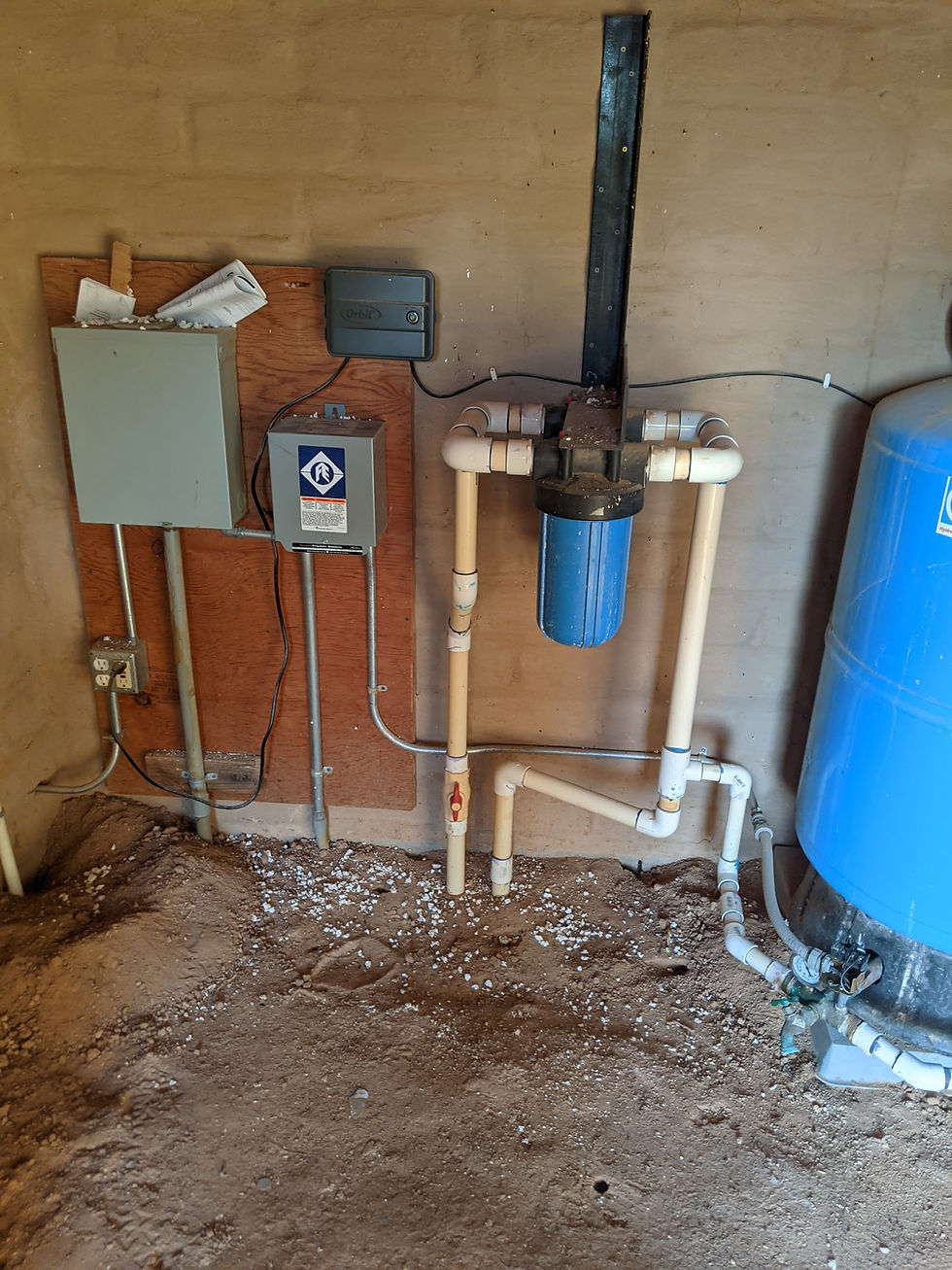Should I treat or filter my well water?
- Lucas McCain

- Jan 26, 2022
- 2 min read

During my well inspections, clients commonly ask some variation of; "Should I treat my water / install a filter / get a reverse osmosis system?" My answer is usually "That's a complicated decision."
Sometimes, you can tell by looking at the water, possibly there's too much turbidity (a fancy word for anything suspended in the water that you can see) and we can tell right away that the water is not going to be pleasant without some sort of filtration. But most of the time, we want to get a water test at a reliable lab for common contaminants to see what we might treat or filter for.
The most acutely dangerous contaminants in well water in the Southwest are bacteria such as E. Coli which is a kind of coliform bacteria that can cause serious illness in humans. Coliform bacteria is easy to test for, and if the lab finds some kind of coliform bacteria, they will test further to determine if there's any e. coli contamination. Ironwood Well Service's partner lab tests for bacteria within 24 hours of drop off and calls us directly if they find any contamination.
It's generally recommended to test well water at least annually for bacteria, after that, it's reasonable to test annually for certain other contaminants such as nitrate, arsenic, lead, etc. A common package test is the EPA Primary Drinking Water Standards which is available at a standard rate.
Once we know what's in the water, and how much of it, we can decide whether to treat the water, how aggressively to treat it and what process(es) to use for treatment. Due to the manner of well construction in Arizona and how deep most of our wells are, it's rare that a residential well needs any continuous treatment in order to be potable.
-Lucas McCain

Comments